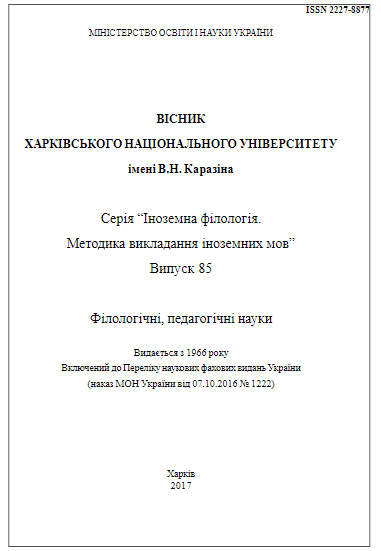A Cognitive Linguistic Perspective on First-person Verbal Report on Emotion Experience
Abstract
This paper addresses the relation between emotions, emotion concepts and emotion names in first-person verbal report on emotion experience and confirms by way of cognitive linguistic argumentation that direct emotion names give no full and comprehensive report on emotion experience. It is cognitive linguistic argument that makes this paper original, whereas the claim of ineffability of subjective, in particular emotion, experience is a long-standing one in the domains of cognitive (emotion) psychology, philosophy of mind, and phenomenology. In this paper, I develop a meaningful state-of-the-art research context first by reviewing scientific literature on emotion experience and on first-person verbal report on this experience, and then proceed to spell out my own perspective as that of a cognitive linguist on the relation between the world (here, emotions), the mind (here, emotion concepts) and natural language (here, emotion names in first-person verbal report on emotion experience). This paper is my elaboration on and interpretation of some of the existing cognitive linguistic approaches to this relation suggested within major East and West European and American schools of thought. My paper suggests a way to combine these approaches within a single investigation.There are alternative major and minor approaches that I do not take into account in this paper because of its scope and purpose. This paper has the potential to inform emotion psychology, philosophy of mind and phenomenology. With a methodology and against a theoretical background that are foreign to either of these disciplines, this paper provides explanation for the incapability of direct emotion names to exhaustively report on emotion experience.
Downloads
References
Жаботинская С.А. Лингвокогнитивный подход к анализу номинативных процессов / С.А. Жаботинская // Вісник Харківського національного університету ім. В.Н. Каразіна. Серія «Іноземна філологія. Методика викладання іноземних мов». – 2010. – № 928(63). – С. 6–20.
Кубрякова Е.С. Язык и знание: На пути получения знаний о языке: Части речи
с когнитивной точки зрения: Роль языка в познании мира / Е.С. Кубрякова. – М. : Языки славянской культуры, 2004. – 560 c.
Никитин М.В. Курс лингвистической семантики. Учебное пособие. 2-е издание, дополненное и исправленное / М.В. Никитин. – СПб. : Изд-во РГПУ им. А.И.Герцена, 2007. – 819 с.
Barrett L.F. Hedonic Tone, Perceived Arousal, and Item Desirability: Three Components of Self-Reported Mood / L.F. Barrett // Cognition and Emotion. – 1996. – № 10(1). – Р. 47–68.
Bloomfield L. Language / L. Bloomfield. – Chicago : University of Chicago Press, 1933. – 580 p.
Charland L.C. Emotion Experience and the Indeterminacy of Valence / L.C. Charland // Emotion and Consciousness. – 2005. – New York : Guilford Press. – P. 231–54.
Evans V. Cognitive Linguistics. An Introduction / V. Evans, M. Green. – Edinburgh : Edinburgh University Press, 2006. – 856 p.
Kemmer S. Schemas and Lexical Blends / S. Kemmer // Motivation in Language: Studies in Honour of Gunter Radden. – 2003. – New York. – P. 69–97.
Korzybski A. Science and Sanity: An Introduction to Non-Aristotelian Systems and General Semantics, 5th Edition / A. Korzybski. – New York : Institute of General Semantics, 1994. – 927 p.
Lakoff G. Philosophy in the Flesh: the Embodied Mind and its Challenge to Western Thought / G. Lakoff, M. Johnson. – New York : New York Basic Books, 1999. – 640 p.
Lambie J.A., Marcel A.A. Consciousness and the Varieties of Emotion Experience: A Theoretical Framework / J.A. Lambie, A.A. Marcel // Psychological Review. – 2002. – № 109(2). – P. 219–59.
Langacker R.W. Cognitive Grammar. A Basic Introduction / R.W. Langacker. – New York : Oxford University Press, 2008. – 584 p.
Ratcliffe M. Feelings of Being: Phenomenology, Psychiatry and the Sense of Reality / M. Ratcliffe. – Oxford : Oxford University Press, 2008. – 320 p.
Scherer K.R. Unconscious Processes in Emotion: The Bulk of the Iceberg / K.R. Scherer // Emotion and Consciousness. – 2005. – New York : The Guilford Press. – P. 312–35.
Trier J. Der Deutsche Wortschatz im Sinnbezirk des Verstandes (Die Geschichte eines sprachlichen Feldes). Bd. I. / J. Trier. – Heidelberg : Duden, 1931. – 347 p.




